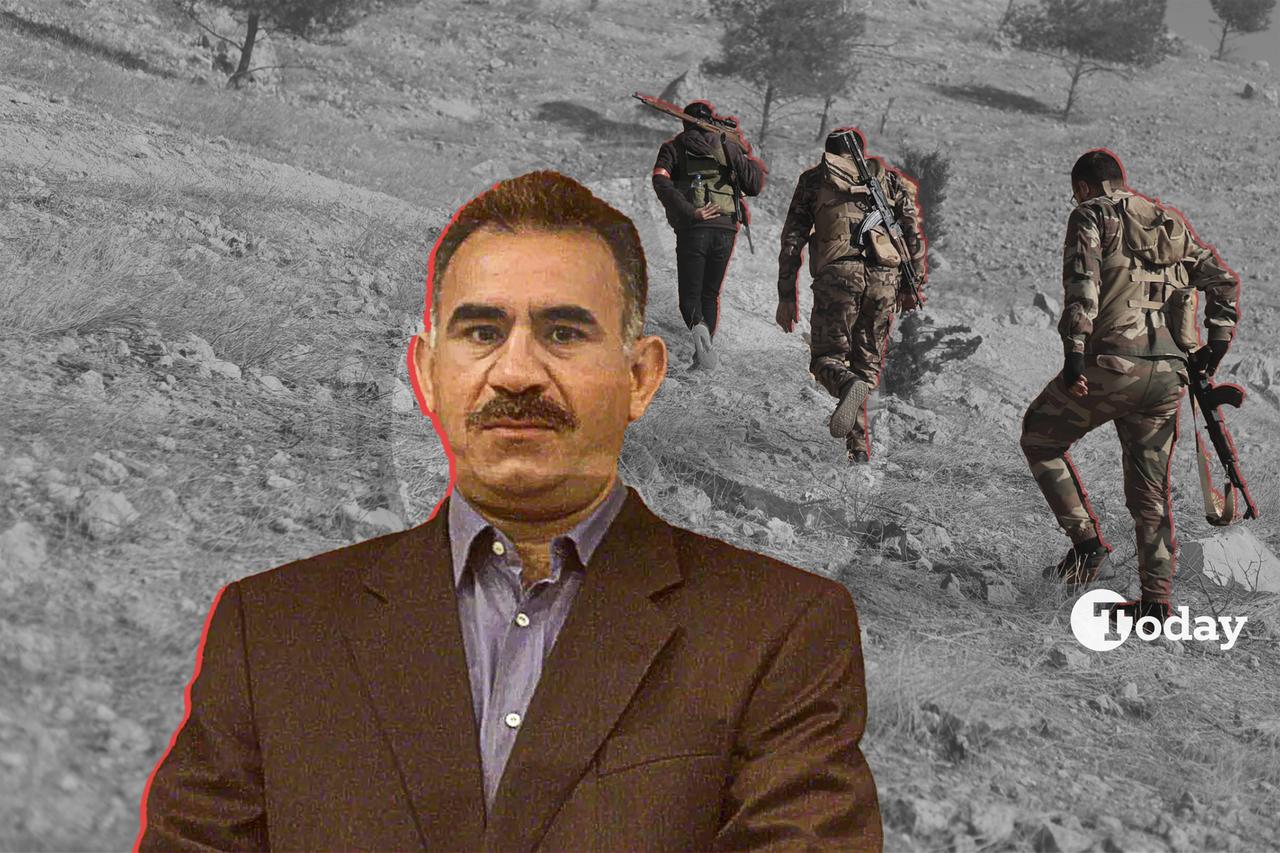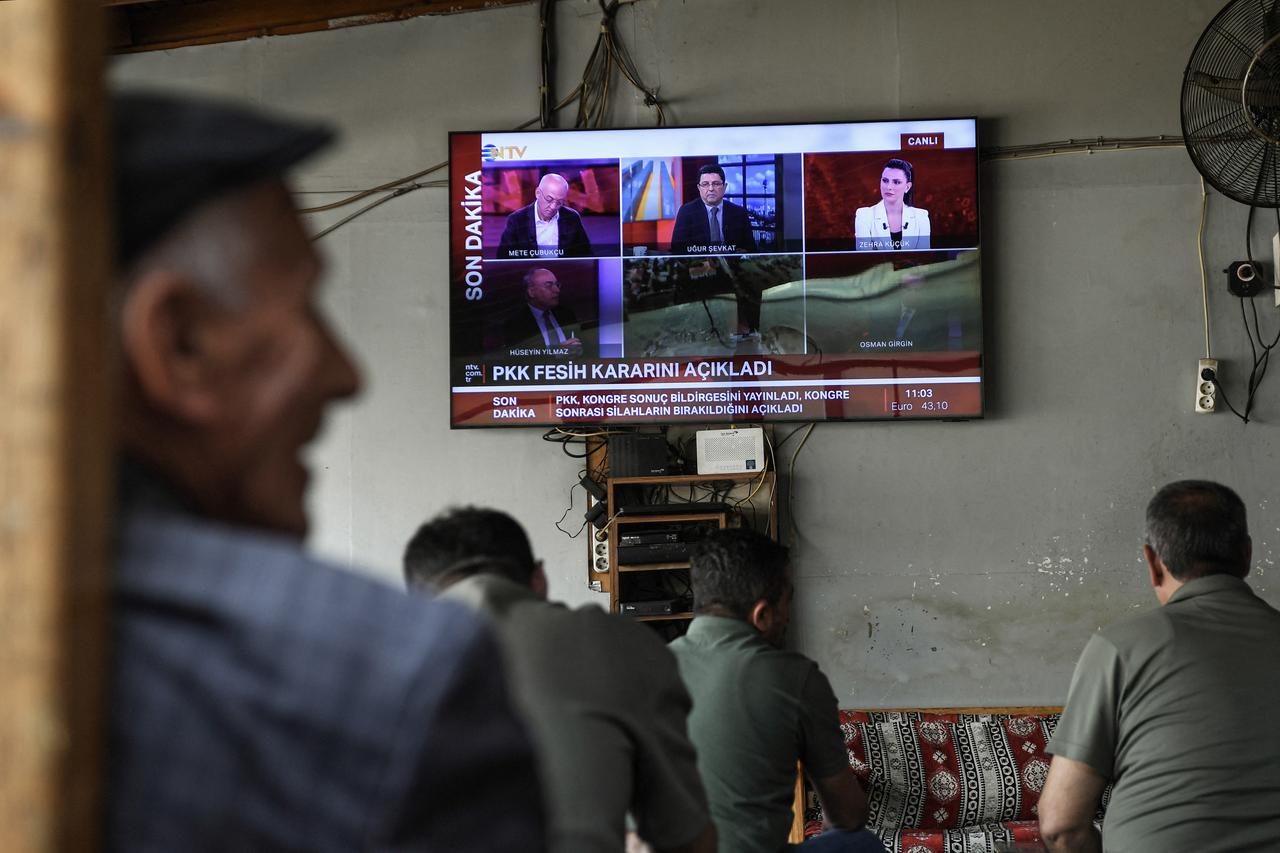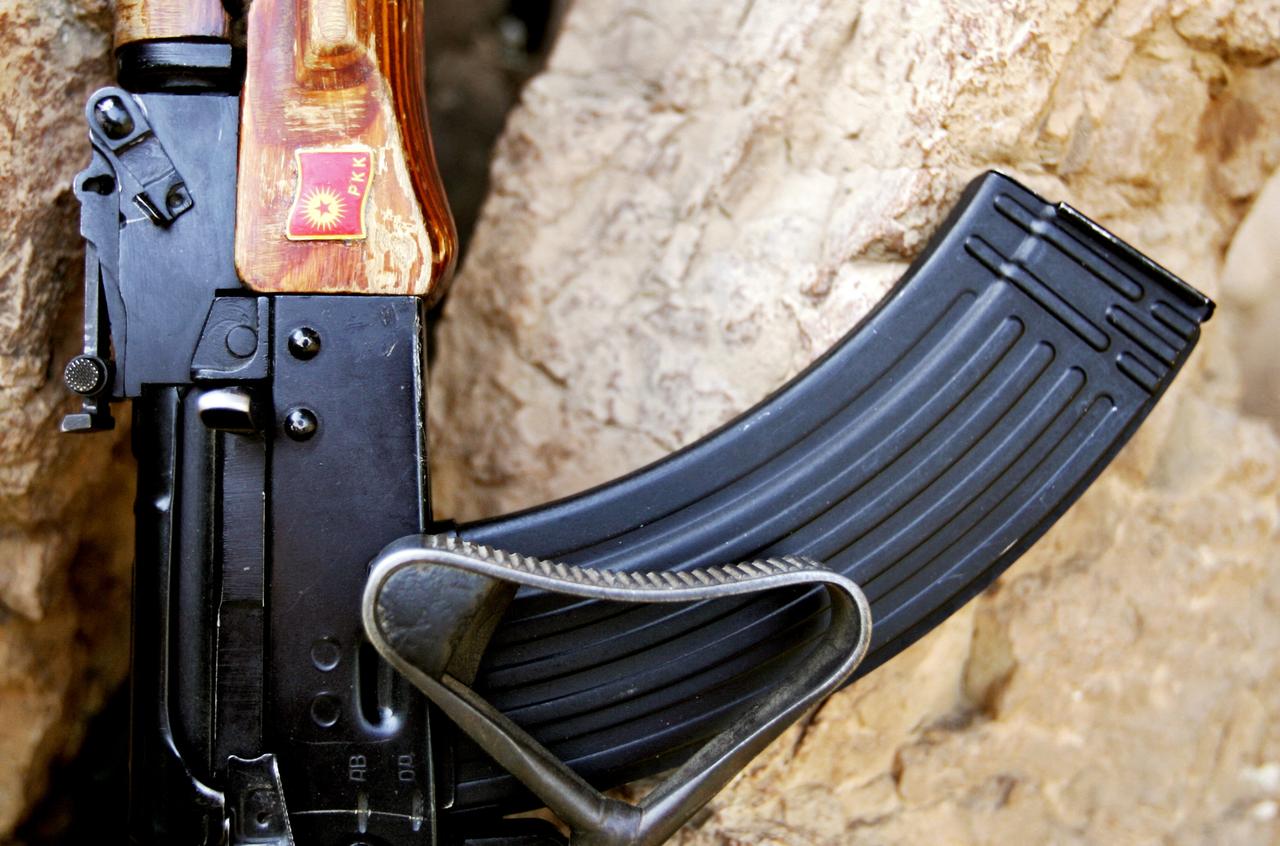
PKK, founded in 1978 by Abdullah Ocalan, has long claimed to represent Kurdish interests in Türkiye. However, a closer examination of its history reveals a pattern of failed peace processes, opportunistic alliances with state actors ranging from Iran to the United States, and a track record of undermining Kurdish unity for its own ideological goals.
Far from fighting for Kurdish rights, the PKK’s actions suggest a primary commitment to its radical vision of democratic confederalism—an ideology that prioritizes stateless governance over the broader Kurdish aspiration for autonomy or statehood. Its May 2025 declaration to lay down arms, while a potential step forward, must be met with deep skepticism. History shows that the PKK’s promises are unreliable unless accompanied by the complete dissolution of the Kurdistan Communities Union (KCK) and all its affiliates, including the Democratic Union Party (PYD) and the Autonomous Administration of North and East Syria (AANES).
Below is a comprehensive analysis of why trust in the PKK remains elusive.
The PKK’s decades-long conflict with Türkiye has been punctuated by multiple peace attempts, each collapsing due to mutual distrust and the group’s strategic maneuvering. These failures underscore the PKK’s reluctance to pursue genuine reconciliation:
1993 Cease-fire Collapse: Following Turkish President Turgut Ozal’s tentative outreach with limited reforms, the PKK declared a unilateral cease-fire. However, deeming the reforms inadequate, the group resumed hostilities after Ozal’s death, revealing its use of peace as a tactical pause rather than a commitment to resolution.
1999–2004 Ceasefire: Ocalan’s capture in 1999 prompted the PKK to withdraw fighters from Türkiye and declare a cease-fire. This period of relative calm ended in 2004 when the group relaunched its insurgency, citing Türkiye’s failure to offer substantial political concessions—an excuse that highlights its inflexibility.
2013–2015 Peace Process: The most significant effort came with direct talks between Turkish officials and Ocalan. The PKK initiated a cease-fire and began withdrawing fighters to northern Iraq. Yet, the process unraveled in 2015 amid escalating tensions from the Syrian Civil War and domestic political shifts in Türkiye, plunging the region back into violence.
These episodes demonstrate a recurring pattern: the PKK leverages peace initiatives to regroup or gain leverage, only to abandon them when conditions shift. This history of broken promises casts serious doubt on the sincerity of its current disarmament pledge, suggesting it may be another calculated move rather than a genuine shift.

The PKK’s alliances with a diverse array of state actors—often at odds with one another—reveal its willingness to prioritize survival and strategic advantage over any cohesive Kurdish agenda. These relationships expose the group’s opportunism:
Iran and the IRGC: The PKK has long operated from Iran’s Zagros Mountains, a sanctuary tolerated by the Islamic Revolutionary Guard Corps (IRGC) to pressure Türkiye. During the Iran-Iraq War (1980–1988), the PKK aligned with Iran to undermine Saddam Hussein, serving Tehran’s geopolitical interests rather than advancing Kurdish goals, but during Saddam Anfal campaign (genocidal campaign against the Kurds) they alligned with Iran - to undermine Kurdistan Region of Iraq.
Syria’s Assad Regime: From the 1980s to 1998, Hafez al-Assad allowed the PKK to operate from Syrian territory as a proxy against Türkiye. In the Syrian Civil War, the PKK’s affiliate, the PYD, has maintained a pragmatic relationship with Bashar al-Assad, occasionally cooperating to secure Kurdish-majority areas while benefiting from Russian and Iranian support.
United States: The PYD’s armed wing, the People’s Protection Units (YPG), became a key U.S. partner in the fight against Daesh, receiving military aid despite Türkiye’s objections. This alliance bolstered the PYD’s position in Syria but strained relations with other Kurdish factions, particularly the Kurdistan Regional Government (KRG), highlighting the PKK’s prioritization of external backing over unity.
Turkish Deep State: Perhaps most disturbingly, the PKK has been implicated in a shadowy relationship with elements of Türkiye’s deep state—a network of military and intelligence figures. The 1996 Susurluk scandal exposed ties between state officials and criminal groups involved in anti-PKK operations, suggesting that the PKK’s persistence may have served as a justification for state repression, inadvertently or deliberately fueling the conflict.
These alliances illustrate the PKK’s readiness to work with any entity—friend or foe—to secure resources, territory, or protection. Such pragmatism undermines any claim to ideological consistency and fosters distrust among Kurds and regional actors alike.

Rather than uniting Kurds across borders, the PKK has repeatedly prioritized its own power, deepening divisions within the Kurdish community:
1990s Kurdish Civil War: During the intra-Kurdish conflict in Iraq (1994–1997), the PKK exploited tensions between the Patriotic Union of Kurdistan (PUK) and the Kurdistan Democratic Party (KDP). While receiving PUK support against Türkiye, it also maneuvered to weaken both factions, exacerbating rivalries that set back Kurdish progress.
2014 Kobani and Sinjar Collaboration: The PKK briefly allied with KRG peshmerga forces to defend Kobani and Sinjar from Daesh, a rare moment of cooperation. But once the areas was liberated they kicked their Kurdish partners out.
Yet, this unity was fleeting. In 2025, following a Kurdish unification conference in Qamishli, the PKK attacked peshmerga forces in Dohuk, shattering hopes of solidarity and reinforcing its reputation for betrayal.
These actions reveal the PKK’s focus on asserting dominance rather than fostering collaboration. Its ideological insistence on democratic confederalism clashes with the KRG’s pursuit of statehood, alienating a significant portion of the Kurdish population and undermining collective efforts for autonomy or independence.
The PKK’s struggle is often mischaracterized as a battle for Kurdish rights. In reality, it is driven by Ocalan’s radical ideology of democratic confederalism—a stateless, decentralized system that rejects traditional statehood and prioritizes armed struggle over negotiation:
Suppressing Dissent: The PKK has a history of eliminating Kurdish rivals who challenge its authority. Assassinations of political opponents and clashes with other factions demonstrate its intolerance for alternative visions of Kurdish liberation.
Militancy Over Compromise: Even when political opportunities arose—such as Türkiye’s limited reforms in the early 2000s—the PKK clung to violence as its primary tool. This commitment to militancy has prolonged the conflict, sidelining pragmatic solutions that could benefit Kurds broadly.
This extremism sets the PKK apart from other Kurdish movements, particularly the KRG, which seeks statehood through diplomacy and governance. The group’s fight is less about securing rights for Kurds and more about imposing its ideological framework, making it an unreliable partner for peace or unity.

The PKK’s announcement to lay down arms in May 2025 offers a glimmer of hope, but several red flags suggest it falls short of credibility:
Incomplete Dissolution: The declaration does not commit to dismantling the KCK or its affiliates, such as the PYD and AANES. These entities could sustain the PKK’s influence and militant capabilities, allowing it to retain power under a different banner.
Strategic Calculation: Given its history, the PKK may be using this pledge to extract concessions from Türkiye or reposition itself amid shifting regional dynamics, rather than signaling a true end to its insurgency.
Ongoing Violence: Despite the announcement, the PYD remains active in Syria, and Türkiye continues its military operations against PKK targets. This persistent conflict suggests that the underlying drivers of violence remain unaddressed.
For this declaration to inspire trust, it must include the complete dissolution of the KCK and the disarmament of all affiliated groups, including the PYD and AANES. Without such concrete steps, the PKK’s promise risks being another tactical maneuver in its long history of broken commitments.
The PKK’s declaration to lay down arms is a tantalizing prospect, but history compels us to approach it with caution. The repeated failure of past peace initiatives, the deep-rooted mistrust fueled by decades of conflict, the group’s opportunistic alliances with actors from Iran to the Turkish deep state, and its consistent betrayal of Kurdish unity all point to a troubling reality: the PKK prioritizes its ideological extremism over the broader Kurdish cause.
The possibility of strategic calculation behind its latest pledge, coupled with the conditional nature of its commitment and the persistence of violence, reinforces the need for skepticism. True peace hinges not just on the PKK laying down arms but on the complete dismantlement of the KCK and its sprawling network, including the PYD and AANES. Until these verifiable actions are taken, trust in the PKK’s intentions will remain an unattainable goal.